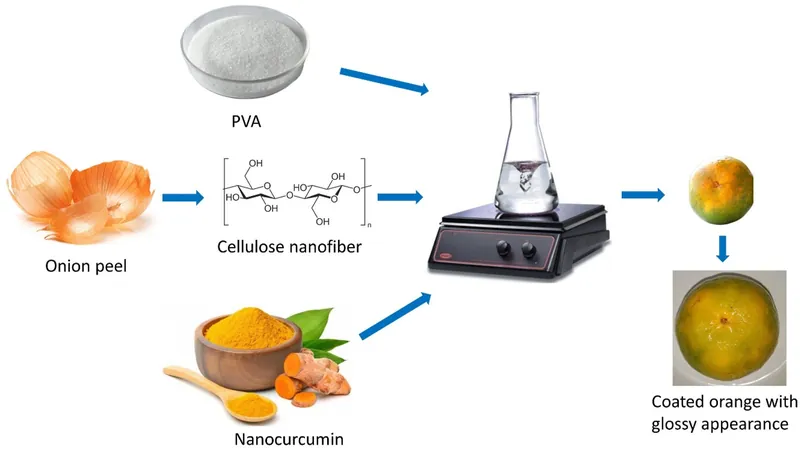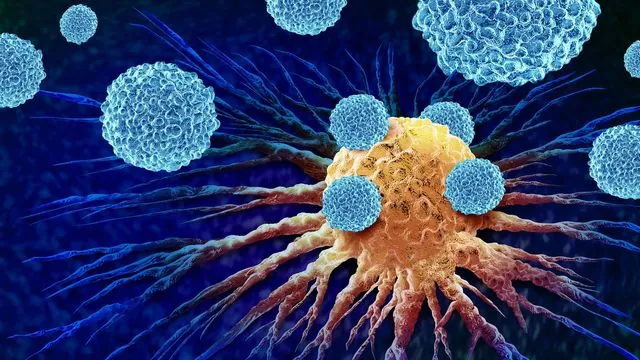
Revolutionary Nanofiber Coating Could Drastically Extend the Shelf Life of Your Favorite Fruits!
2025-01-07
Author: Emily
Revolutionary Nanofiber Coating Could Drastically Extend the Shelf Life of Your Favorite Fruits!
In a world where food waste is becoming an alarming global issue, researchers are exploring innovative solutions to keep fruits and vegetables fresh for longer. As fresh produce travels from farm to table, significant amounts are discarded due to spoilage, contributing to a staggering waste rate. Current storage methods, such as cold storage and plastic packaging, often exacerbate the issue, relying on non-biodegradable materials and hazardous chemicals that leach into our food and the environment, posing health risks to consumers.
However, a groundbreaking study published in *Hybrid Advances*, led by Poornima Vijayan at Sree Narayana College for Women in Kollam, India, unveils an exciting new approach that could revolutionize food preservation. This innovative method involves an eco-friendly coating made from cellulose nanofibers derived from onion skin, which is both edible and effective at prolonging the shelf life of produce.
The Magic of Nanofibers
Cellulose nanofibers (CNFs) represent the next frontier in protective coatings for fruits and vegetables. Extracted from plant cell walls, these nanoscale fibers can combat spoilage. Yet, past attempts to use CNF coatings have stumbled due to their low water resistance and thermal stability, especially in tropical climates. Vijayan's team has devised a solution by developing a new formulation of these coatings, specifically tested on Mandarin oranges.
“To promote sustainable practices in agriculture, we utilized discarded onion peels to create our nanofibers,” Vijayan explains. These nanofibers are combined with polyvinyl alcohol (PVA), a non-toxic and biodegradable polymer that ensures cohesion and enhances the coating’s resistance to heat and moisture. But that’s not all—nanocurcumin, known for its antimicrobial and antifungal properties derived from turmeric, is added to create an even more powerful protective layer.
A Game-Changer for Produce Preservation
The research team conducted experiments by immersing Mandarin oranges in the nanofiber mixture for just two minutes before letting them air dry. For the following two weeks, they closely monitored the coated oranges’ weight, acidity, and total soluble solids (TSS)—key indicators of freshness. Remarkably, while the unprotected oranges began to decay visibly after just 13 days, the coated fruits remained remarkably fresh, showing minimal changes in their quality indicators.
The implications of this study are profound. If applied on a larger scale, Vijayan's nanofiber coating could drastically reduce food waste and lessen our reliance on harmful plastics, setting a new standard for food preservation methods.
“This research embodies the concept of 'wealth from waste'—transforming agricultural byproducts into valuable solutions,” Vijayan states. The eco-friendly approach not only addresses the urgent need to tackle plastic pollution but also minimizes the health concerns related to microplastics now pervasive in our food systems.
As this innovative technology heads toward real-world applications, consumers and producers alike could soon benefit from a greener, more sustainable way to enjoy fresh produce—keeping it safe, delicious, and free of harmful additives. With these advances, we might finally witness a shift in how we think about our food supply, ushering in a new era of sustainable agriculture and food production.









 Brasil (PT)
Brasil (PT)
 Canada (EN)
Canada (EN)
 Chile (ES)
Chile (ES)
 Česko (CS)
Česko (CS)
 대한민국 (KO)
대한민국 (KO)
 España (ES)
España (ES)
 France (FR)
France (FR)
 Hong Kong (EN)
Hong Kong (EN)
 Italia (IT)
Italia (IT)
 日本 (JA)
日本 (JA)
 Magyarország (HU)
Magyarország (HU)
 Norge (NO)
Norge (NO)
 Polska (PL)
Polska (PL)
 Schweiz (DE)
Schweiz (DE)
 Singapore (EN)
Singapore (EN)
 Sverige (SV)
Sverige (SV)
 Suomi (FI)
Suomi (FI)
 Türkiye (TR)
Türkiye (TR)
 الإمارات العربية المتحدة (AR)
الإمارات العربية المتحدة (AR)